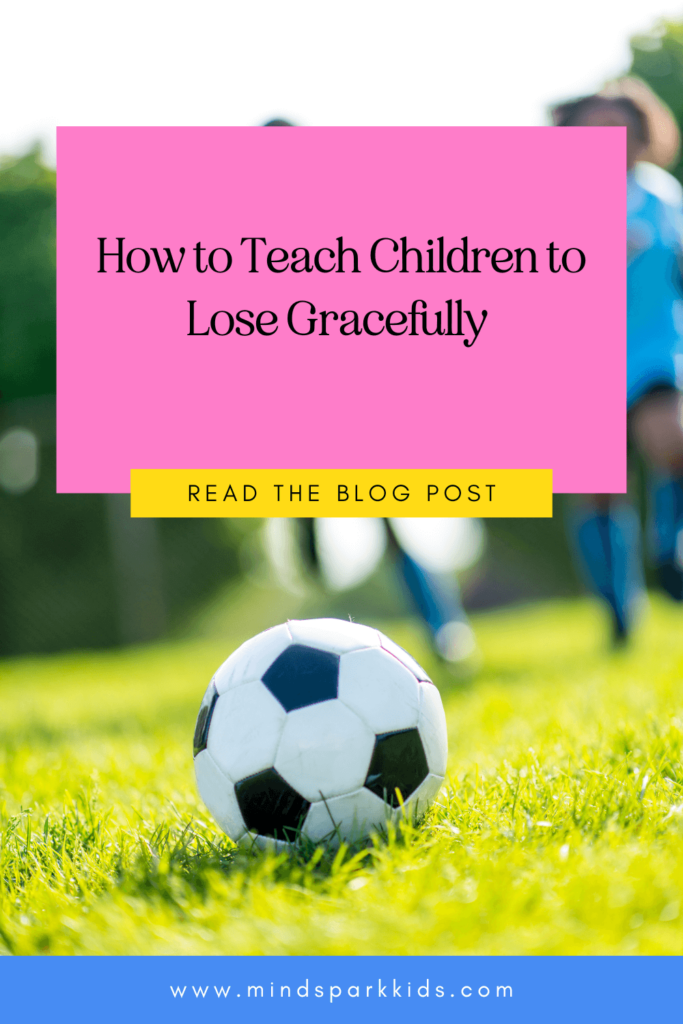When my sons were younger, I would dread when they lost anything. And when I say anything, I mean it didn’t matter if it was Uno, Monopoly or a Saturday morning soccer game. I didn’t dread the loss because I’m one of those parents that reprimand a defeat; I’m actually the opposite. I just knew the meltdown was imminent. All I could do was just buckle up, hunker down and get ready for the hurricane.
Having done this parenting thing now for 17 years, I’ve navigated through the murky waters of defeat with my sons hundreds of times. What I’m about to say won’t make the feeling of a loss enjoyable but like an epidural, it may take the edge off. Let’s get started!
Don’t Make Excuses
I’m not going to lie; on more than one occasion I’ve had the urge to follow the referee out to the parking lot to have a discussion. Not only do I stop myself because it’s not the right thing to do but it would show them how to select a scapegoat. Yes, your kid may have had a crappy ref but this is a time you can teach them to look inward and see how they could have contributed more as an individual.
To this day, my 13-year-old focuses on all the missteps his teammates took. He’s also been known to blame the coach on more than one occasion, especially when the coach advises them of their opportunities as players.
Just Listen
Sometimes the most supportive thing we can do for our child is listen. Even if that involves listening to a meltdown. As long as the meltdown or rant doesn’t include lashing out at siblings or friends, it can feel cathartic. In the beginning, I used to tell my sons how to feel instead of listening. I would even express frustration if they had meltdowns about a loss. Let them know it’s ok to feel disappointed and listen to them.
Empathize About the Loss
Empathize but don’t hijack the conversation. What I mean is the loss isn’t about you. Keep your quick story about your loss, just that, quick. Your 8-year-old son isn’t going to care that you came in second when selling Girl Scout cookies. Not that I know EXACTLY how that felt.
Don’t Discount Their Feelings
It’s so much easier just to say cheer up or it wasn’t that bad. Telling a child that it’s just a game is on par with someone telling me Target isn’t any better than any other store. Yes, it is and you don’t know what you’re talking about. But seriously, realize that the game meant more to them so don’t brush them off.
Be a Role Model on How to Lose
Did I mention that I’m an incredibly sore loser when it comes to board games, especially Monopoly? It’s an ongoing joke in our family about the rivalry between my sister and I. It takes everything in me not to lose my mind if after three hours, I’m not sending all family members to the poor house.
So now, instead of making snippy little comments while paying my sister $24 rent on Marvin Gardens, I just smile sweetly to her. She knows what I’m thinking but I can’t show my sons I’m a sore loser and then expect something different from them.
Set Expectations of a Winner and a Loser
When my sons were between the ages of 5 and 10, I would announce that someone would win and someone would lose. I would say one of our rules would be to keep a cool head and the game was just for fun. They would immediately nod their heads that they understood. Thirty minutes into the game though, I’m convinced what they heard me say was “play to the death and destroy your brother by any means necessary.” I always set expectations. In the beginning it had about a 5% success rate. As they grew older, 5% turned into 70%.
Now that my sons are older, losing these days is much different. They’ve felt both the sweetness of a win and the disappointment of a loss. Time has helped them understand that life gives us both. My youngest is 13 and still struggles sometimes with his emotions after a tough loss. Fortunately, these occurrences seem to be getting fewer and fewer. I just hope that when they’re adults, playing Monopoly together, they can look at each other sweetly and know how much they want to throat punch each other.
By Angela Miconi
Try MindSpark Kids FREE for 7 days!
At MindSpark Kids, we help parents, caregivers, educators, and mental health professionals teach children how to develop necessary life skills. Why? Because socially and emotionally intelligent children grow up to be healthy, happy adults.
MindSpark Kids is an online membership with a database of social and emotional learning videos and worksheets to help children understand their emotions, make good decisions, and think critically.

Download your FREE Emotions Parent & Educator’s Guide
Join our newsletter and download our FREE guide now and start building your child's emotional intelligence today!